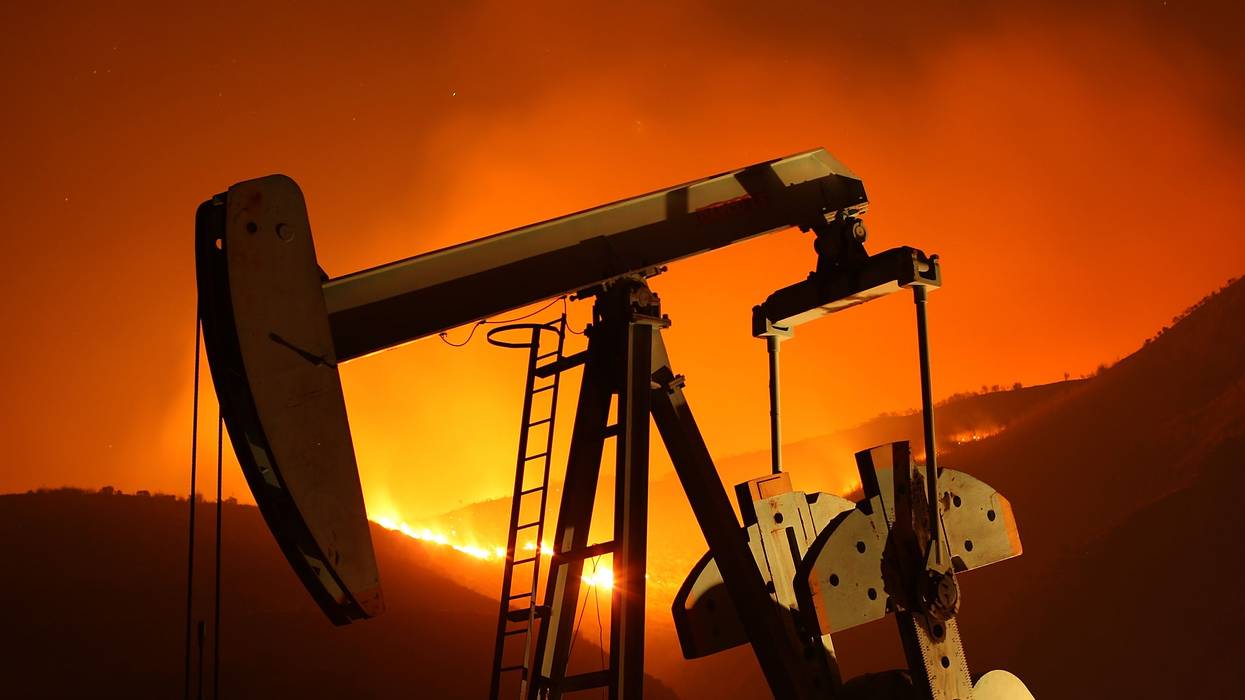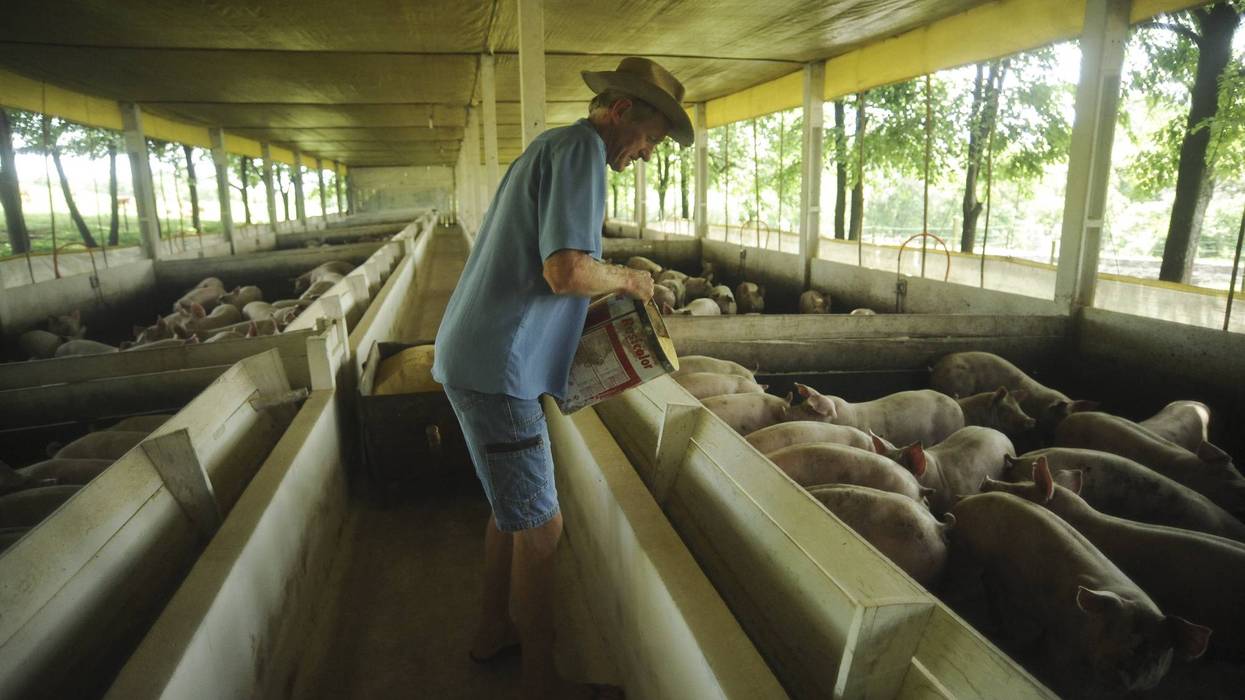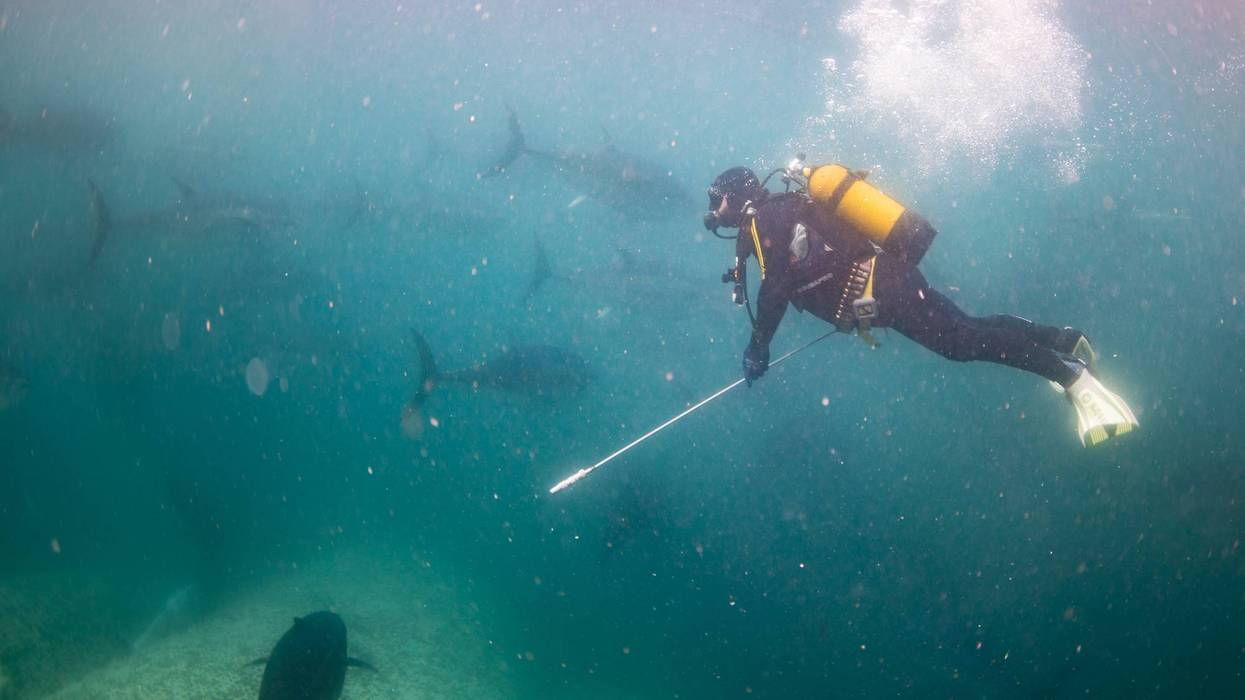President-From-Hell Trump Brings Us Ever Closer to a Point of No Return
Someday, this president may be known as the End-Times president, since he and his Republican confederates (and I use that word advisedly) seem remarkably intent on ensuring that this planet will indeed become a hellhole for our children and grandchildren.
I grew up with a vision of a possible instant apocalypse, inspired (if, under the circumstances, such a word can even be used) by the nuclear obliteration of the Japanese cities of Hiroshima and Nagasaki to end World War II. It could happen at any moment, even if you were “ducking and covering” under your school desk, as I did in those years. And I was hardly alone. That was a genuine generational nightmare of the 1950s and early 1960s — the possibility of a nuclear war between my country and the Soviet Union that might devastate my city, New York (or your city, FILL IN THE BLANK), and our world. But in those years what I never could have imagined was that, even without an atomic blast, I might already be living through the extremely slow-motion equivalent of just such an apocalypse, which should, of course, be the definition of climate change.
And with that in mind, let me start this piece with a distinctly slow-motion apocalyptic moment some seven decades later, one I’m living through not as a young kid under that desk at school but as an old man under the presidency of Donald J. Trump. Recently, in a White House ceremony, the president was crowned the “undisputed champion of beautiful clean coal” by the Washington Coal Club, an event attended by Environmental Protection Agency (or do I mean Environmental Destruction Agency?) administrator Lee Zeldin, as well as Secretary of the Interior Doug Burgum, both, as the Guardian reported, “staunch coal advocates.” The ceremony was in honor of the “signing of an executive order directing the defense department to secure long-term power purchase agreements with coal plants for military installations and other ‘mission-critical facilities.’”
And honestly, you don’t need to know much more to grasp that this world — as the Guardian also reported recently — is heading for a potential “point of no return” on the way to becoming an all too literal (if still reasonably slow-motion) hell on Earth, a genuine “hothouse planet.” Imagine that! And imagine that, in the future, the Trump administration is working so energetically to make far hotter, far faster, there will be no desks to duck under. And imagine as well that the man “we” chose to elect to a second term in office in November 2024 is now working all too feverishly to ensure that he’ll be remembered as the president of no return and that, before he’s done, it won’t just be the East Wing of the White House that he will have turned into rubble.
In that context, let me tell you just whom I feel bad for: the reporters on the beat in Washington, D.C., covering… yes, that genuine nightmare, President Donald J. Trump, the second time around. I often dream about trying to tell my parents (who died in 1977 and 1983) about this world of ours and You Know Who. But there would honestly be no way to do so. If they were to appear now, I’d be at a complete loss and, in any case, they would never believe me. Whatever I told them would, from the perspective of their ancient American world, seem like the most ludicrous form of fiction imaginable, not even a good (or bad) joke. A president like Donald J. Trump? Dream on. (Or more pointedly, of course, nightmare on.)
And yet here we indeed are. No question about it. And imagine this: the American people, or at least 49.7% of us, elected for a second time a man whose most essential goal remains the literal fossil-fuelization of planet Earth. Though all too few of us say so, Donald J. Trump as president of the United States should distinctly be considered the nightmare of our age, or possibly of any age. Once upon a time, you couldn’t have made such a thing up and yet, unbelievably enough, he wasn’t just elected president once (after all, anyone can make a mistake, even a truly grim one) but — yes! — twice! How could that have been possible, especially for a candidate so intent on taking our world down with him? Indeed, in November 2024, the American public reelected a former president who seemed to be itching to turn the United States into his personal property, while working all too literally to incinerate this planet. Just try to imagine that!
Can Donald Trump Flip American Democracy on Its Butt?
And that should indeed be considered a nightmare and a half. In this piece, then, let me offer both my pity and compassion to the reporters who have to cover Donald J. Trump for at least the next three years. Yes, hard as it might be to believe, barring a health disaster, always possible for someone who is going to turn 80 in July, we indeed do have (almost) three more years of him — and I should undoubtedly add “at least” to that. After all, he’s already clearly thinking about how to flip the more than two-century-old American political system on its head (or do I mean its butt?) and turn it into something else entirely — transform it, in fact, into his personal property. (Exactly what he and his associates have recently been trying to do with this country’s elections, which the president would now like to “nationalize.”) And to hell with the Constitution or anything or anyone else who might try to stop him! (As he wrote at one point on Truth Social, “RECORD NUMBERS ALL OVER THE PLACE! SHOULD I TRY FOR A FOURTH TERM?”) And don’t forget that the Trump Organization is already selling “Trump 2028” hats for a mere $55.
So, make that possibly five, six, seven, or more flaming years of him working to shut down (or at least endlessly stall) wind and solar projects in this country while continuing to fossil-fuelize the United States (and, naturally, the planet) in a striking fashion.
Of course, I’m perfectly aware that all of that might indeed not happen. Despite this ever eerier present we’re now living through, it might only be my grim fantasy of our future. Even Donald J. Trump might not be able to literally flip the American system on its ass. But given what we’ve gone through so far, don’t count on it not happening either.
And, of course, we’re not just talking about the man who wants to flip the system on its butt, we’re talking about the guy who seems all too intent on doing the same thing to planet Earth. Someday, Donald Trump may be known as the end-times president, since he and his Republican confederates (and I use that word advisedly) seem remarkably intent on ensuring that this planet will indeed become a hellhole for our children and grandchildren. At some level, it should be considered beyond remarkable that even 49.7% of Americans voted for a presidential candidate intent, perhaps above all else, on burning this planet to the ground.
Giving Imperial Decline a New Name
I mean, just imagine that, in Donald Trump’s world (as well as Vladimir Putin’s and Benjamin Netanyahu’s, since there’s nothing like a good war to drive staggering amounts of planet-heating fossil-fuel gasses into the atmosphere), this planet is his birthday cake and he’s intent on lighting the candles (most recently, of course, with his war in Iran).
After all, 2023, 2024, and 2025 were, as a threesome, already record-setting when it came to the (over)heating of our world. They were the three warmest years on record, and undoubtedly 2026 won’t be an anomaly when it comes to heating the Earth to the boiling point. In short, to make a particularly depressing point, whether you’re talking about fires, floods, droughts, or heat waves, what once would have been considered extreme weather is becoming ever less so, year by grim year. In the United States in 2025, there were 23 — yes, 23! — extreme climate-related disasters, each of which cost us more than a billion dollars. In short, the extremity of climate change is slowly becoming the norm.
In other words, we’re already on a different planet — and one only becoming ever more so thanks to those wars and world leaders like Donald Trump who remain so committed to the use of fossil fuels. And sadly, by the time they’re done, the resulting slow-motion apocalypse will be one where children won’t even be able to imagine ducking under their desks for protection.
In short, President Donald J. Trump is bringing us ever closer to “a point of no return” when it comes to climate-tipping points. Even in his own terms, by emphasizing fossil fuels the way he does, and trying to put the — yes, torch! — to anything associated with green energy, including electric vehicles, he’s turning whatever future we still have on this planet over to the Chinese in a fashion that should give imperial decline a new meaning. After all, despite the fact that China is still using staggering amounts of fossil fuels, the leaders of that country are also putting no less staggering financial resources and effort into creating green-power systems of every sort, which they’re already selling around the world. Meanwhile, they’re producing and exporting Electric Vehicles, or EVs, in a dramatic fashion. In fact, for the first time last year, the Chinese deployed more clean power in their country than fossil-fuel generating capacity.
On this planet right now, if you want a sign of imperial rise and decline, just check out the opposite ways China and the U.S. are dealing with clean energy. In the end, Donald Trump and crew would rather blow up boats in the Caribbean Sea and the Eastern Pacific Ocean, militarily seize the president of Venezuela, plan for taking control (in whatever fashion) of Greenland, and… well, do I really need to keep going? But climate change? No change there, just more of the same.
In short, President Trump remains remarkably intent on fossil-fuelizing our climate (and us) to death. Just the other week, in fact, he announced that, as the New York Times reported, he was “erasing the scientific finding that climate change endangers human health and the environment, ending the federal government’s legal authority to control the pollution that is dangerously heating the planet… a key step in removing limits on carbon dioxide, methane, and four other greenhouse gases that scientists say are supercharging heat waves, droughts, wildfires, and other extreme weather.” And count on this: for the next three years, that’s only the beginning when it comes to the president who has all too bluntly called the very idea that climate change might be a threat to public health “a scam.”
And count on something else as well: blowing up boats will prove to be nothing compared to setting fire to this planet.
Once upon a time in the previous century in this country, “red” was short for communist. In 2026, however, red should be short for fire, for the burning of this planet. Though Donald Trump is certainly no commie, he stands every chance of turning himself into the reddest president ever (and I’m not just thinking of those blazing red ties and hats he wears). Someday, his name will undoubtedly be synonymous with wildfire, drought, and unbearable heat, while “Trumping the planet” will mean heating it to the weather version of the boiling point.
In some fashion, give him credit. Donald Trump is all too literally intent on making himself into the president from hell, the president of no return, while ensuring that the rest of us will be living on one hell of a planet.


